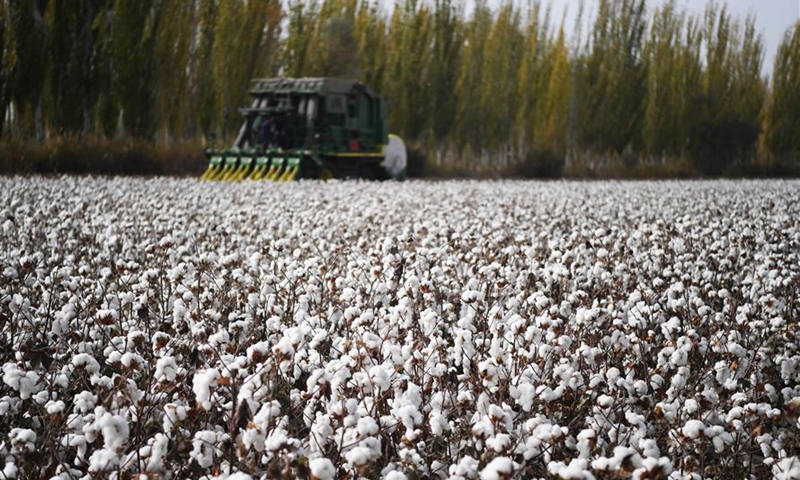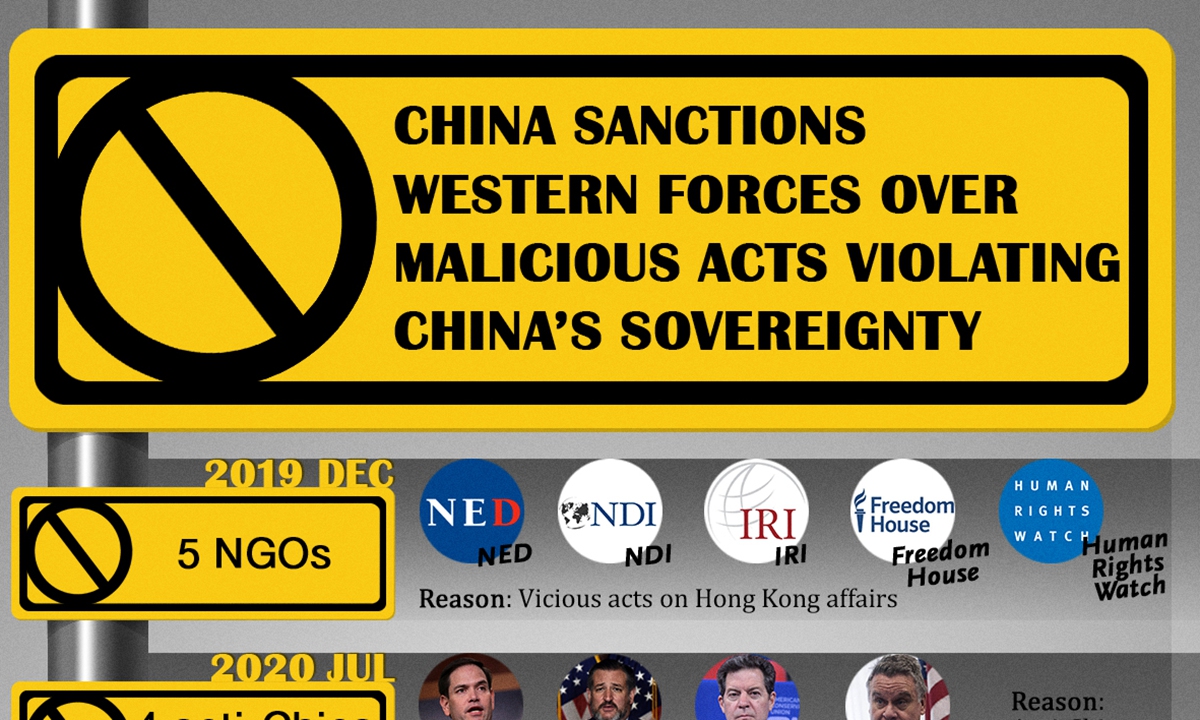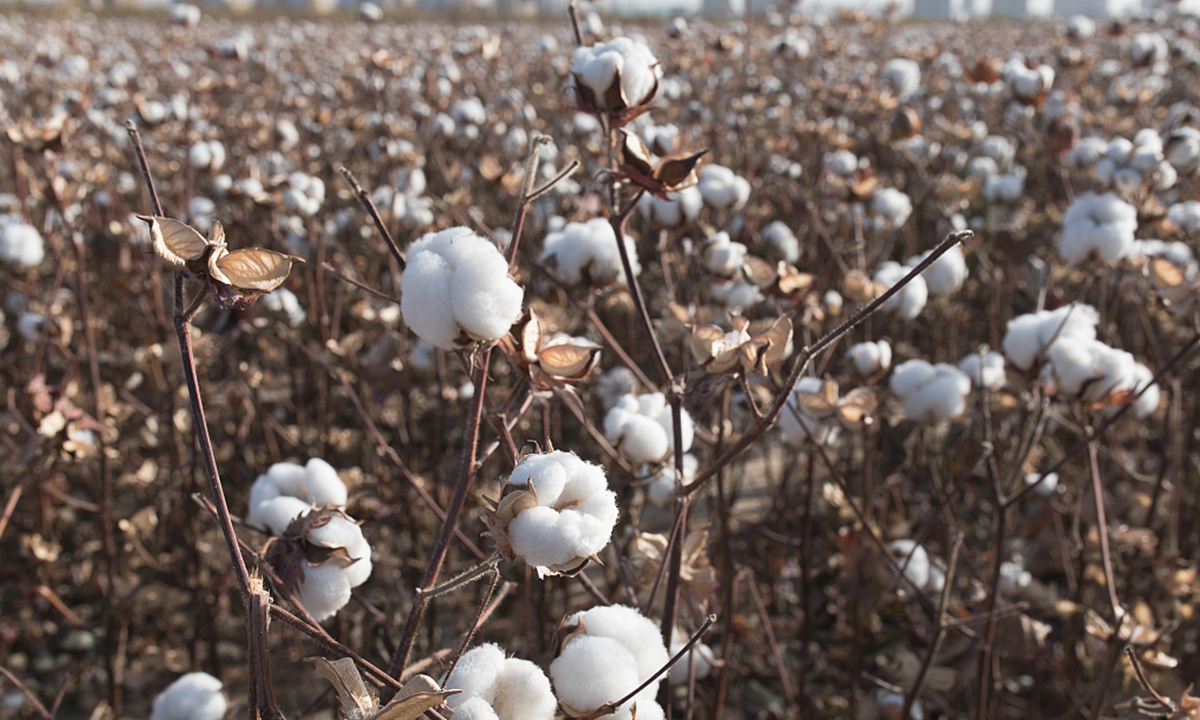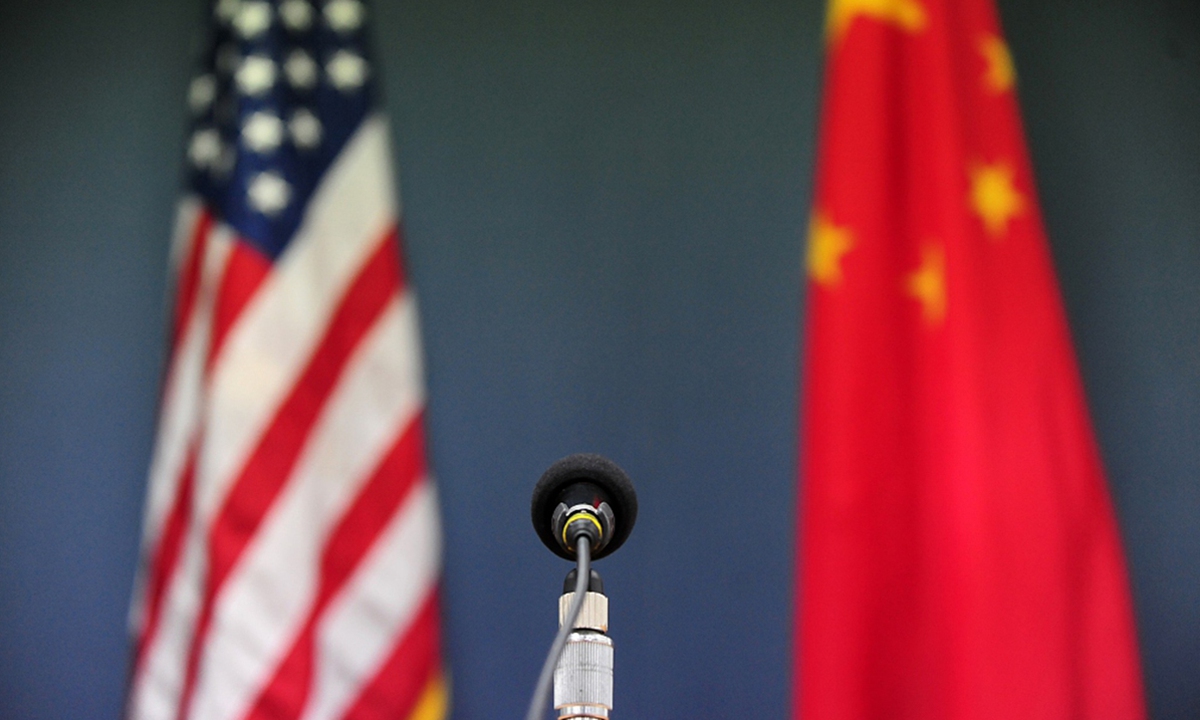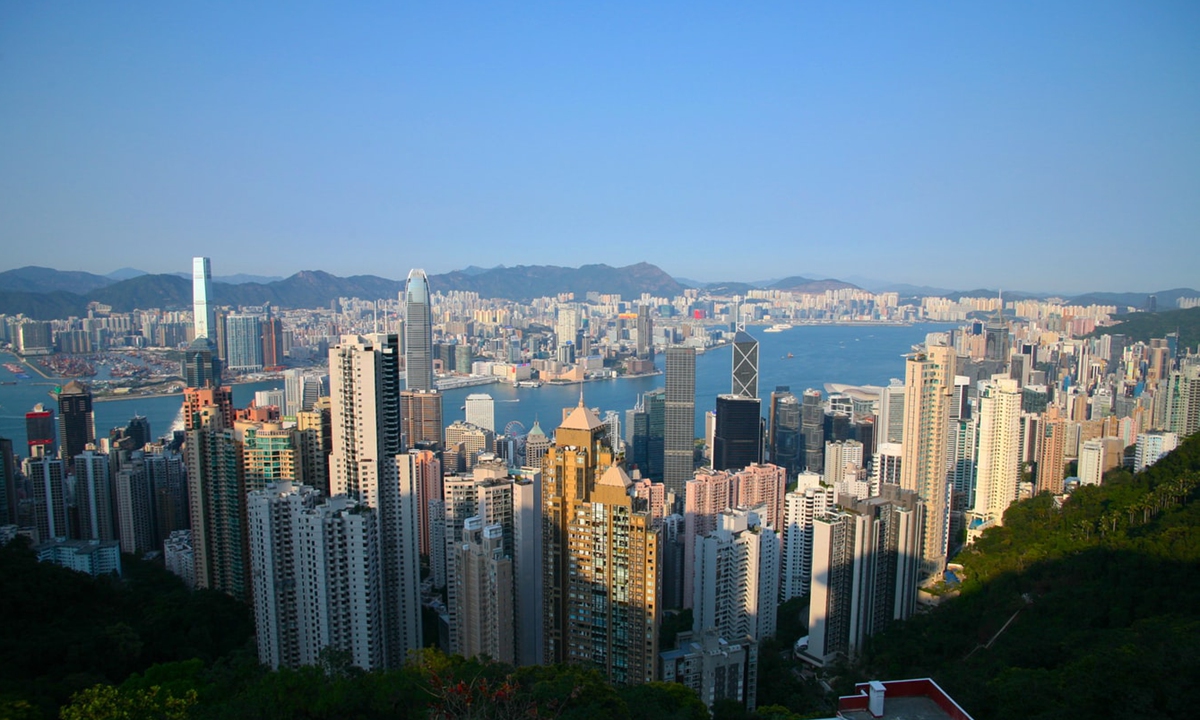.
.
.
Anger brews in China over brands boycotting Xinjiang cotton, linking it to claims of forced labour..
.
CHINA is the biggest cotton user and second largest producer in the world.
.
It produced nearly 5.2 million tonnes of cotton last year, and some 87% came from Xinjiang, according to the National Bureau of Statistics.
.
This commodity has in recent years been “politically tainted” following accusations of forced labour at cotton fields in the Xinjiang Uyghur Autonomous Region.
.
The Better Cotton Initiative (BCI) – an influential non-profit organisation to promote sustainable cotton farming – has stopped issuing licences to cotton producers in the region since early last year.
.
Without the certificate, cotton farmers could not sell their goods to retailers, suppliers and manufacturers, who have to follow the BCI standards.
.
The organisation has nearly 2,100 members, of which nearly 500 are from China.
.
This issue resurfaced again in the wake of the rising tension between the Dragon nation and the West
.
after the United States, European Union (EU), Britain and Canada imposed sanctions on several Chinese officials over human rights issues in Xinjiang.
.
There were non-stop claims of China detaining Muslim Uyghurs at concentrated camps, stripping off their religious rights and forcing them into hard labour at mass cotton fields.
.
China has denied all accusations and retaliated with sanctions on the individuals and entities from the EU.
.
Fashion giant H&M was the first to come under fire in a series of propagated plots.
.
The Swedish retailer had in October last year said on its official website that it did not source products from Xinjiang due to “reports on forced labour and discrimination of ethno-religious minorities” in the region.
.
This statement came to light again last week, fuelling anger of netizens, who called on a boycott against the brand.
.
The flame quickly spread to Adidas, Nike, Uniqlo, Muji and some others, and old statements they made in relation to the ban on Xinjiang cotton resurfaced.
.
Extreme citizens have carried out verbal attacks on workers at both the physical outlets and online stores, calling them traitors and asking them to resign while urging purchasers to burn or throw away their products.
.
This prompted the rational ones calling for such “stupid” acts to be stopped.
.
A hashtag on “Do not make workers’ lives miserable” was read 250 million times and generated 57,000 discussions.
.
“It is your choice to tear or burn your stuff, but don’t see others as not patriotic if they don’t follow what you did, ” wrote one netizen named Yisuo.
.
Another netizen said it was shameful to bully their own countrymen, adding that: “Life is not easy, these workers have mouths to be fed.”
.
An online campaign on Sina Weibo, #IsupportXinjiangcotton, has also been launched in support of the major commodity in Xinjiang.
.
It gained 4.2 billion views as of early Friday.
.
On the other hand, over a dozen Chinese companies have stood by the northwestern region of China.
.
Among them, sportswear company Anta announced its withdrawal from BCI, winning the hearts of the Internet users, who said they would only buy Made-in-China products in the future.
.
Some people viewed that such support would not last long.
.
“I could foresee that these people who shouted the loudest boycott calls will go into a buying frenzy when the brands offer huge discounts, ” said one of them.
.
Chinese celebrities have also acted swiftly to distance themselves from the controversial brands.
.
Actor Huang Xuan, the spokesperson of H&M, was the first to announce ending his cooperation with the brand, followed by some 30 others including idol Wang Yibo, who terminated his contract with Nike.
.
Hong Kong star Eason Chan and Chinese singer-actor Yi Yangqianxi, a member of TFBoys, had cut off ties with Adidas.
.
Others include Xinjang lass Dilraba Dilmurat, actresses Yang Mi and Liu Yifei as well as model Liu Wen.
.
Last Thursday, training photos released by Shanghai Shenhua Football Club showed no sign of the Nike logo, leading to speculations that the pictures have been photoshopped to remove the logo from the right chest area of the players’ jerseys.
.
Nike is the sponsor of all Chinese Super League teams.
.
China’s Foreign Affairs Ministry spokesperson Hua Chunying said Xinjiang cotton is among the best worldwide and it would be a loss for companies not using it.
.
Beijing also clarified that forced labours and other allegations on the Uyghurs were malicious lies in an attempt to smear the country.
.
She also showed a picture of the modernised cotton field, saying over 70% of the cotton was picked with machines.
.
“There is no forced labour in hand-picking cotton. It’s ridiculous that some enterprises actually believed in such rumour, ” she added.
.
Asked if the issue involving the international brands resurfaced as China’s move to pressure and intimidate them into voicing supports for the country’s position on Xinjiang-related issues, Hua said these enterprises can be their own judges.
.
“Given the size of Chinese market, we don’t need to pressure anyone, ” she added.
Related
Boycott West's guilt presumption of China: Global Times editorial
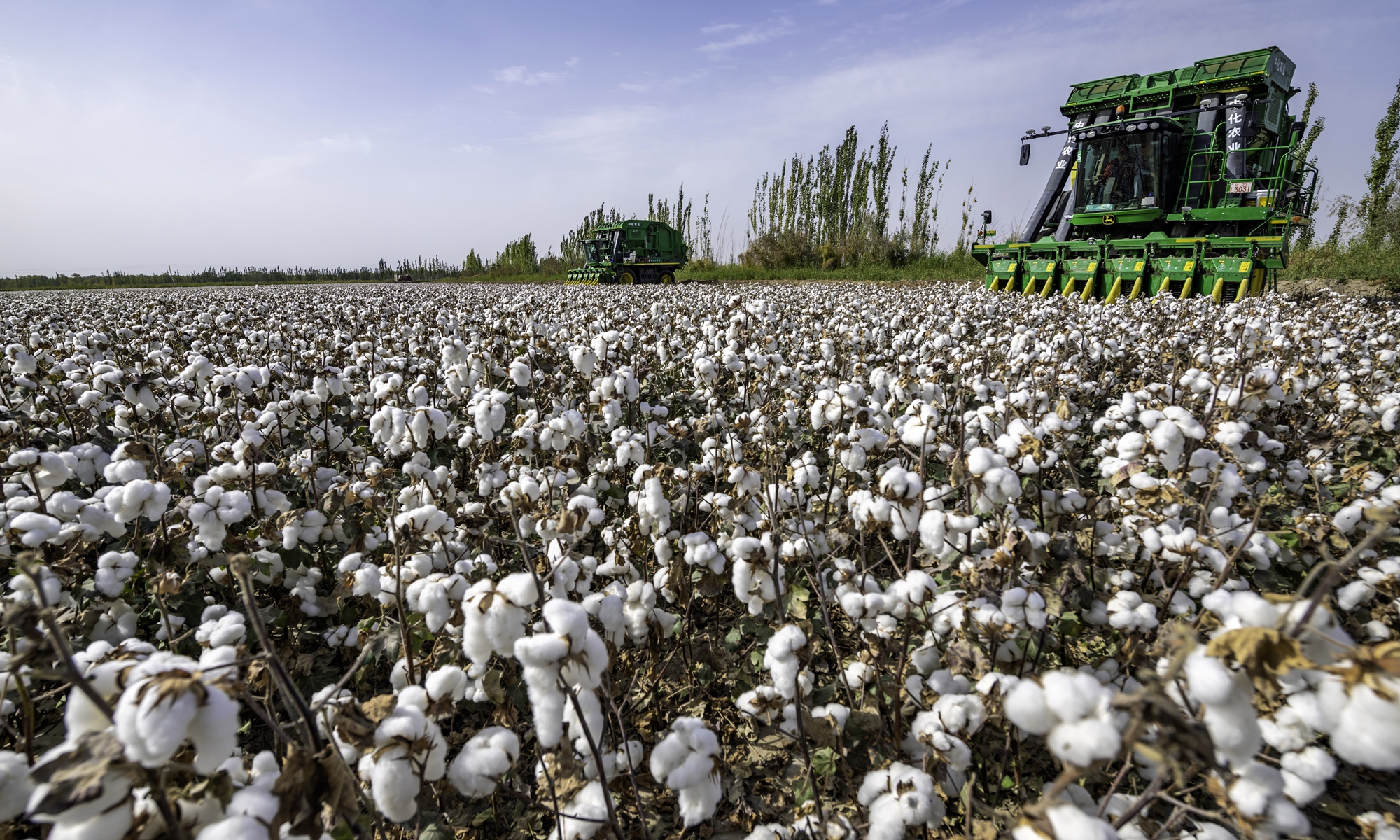
In a cotton-producing village in Bayingolin Mongolian Autonomous Prefecture, Northwest China's Xinjiang Uygur Autonomous Region, large-scale machines operate at full capacity to seize the harvest season on September 28, 2020. The total cotton plantation area in Xinjiang reached 24.19 million mu (1.6 million hectares) and around 16.90 million mu were harvested by machines in 2020, accounting for 70 percent of the plantation area. Photo: VCG
Cartoonist Wuheqilin defends Xinjiang cotton boycott with new illustration, gaining wide popularity
“Can you tell us what unfair treatment you have suffered, Miss scarecrow?” a reporter in a Klan hood asked a scarecrow who is being nailed to a column of shame while ignoring real slaves picking cotton behind their backs. '
Sales of Xinjiang cotton products skyrocket in China, after foreign bans spark outrage
Textile products made with cotton from Northwest China's Xinjiang Uygur Autonomous Region have seen their sales skyrocket in the domestic market over the past several days, as consumers expressed firm support for the product with their purchasing power after bans by some foreign brands sparked widespread outrage in the country.
-
China, Europe shouldn't fall for US' battlefield trap: Global Times editorial
The game between China and the US is one of strength, will, strategy and patience. China should become stronger and more united, and form more open and unspoken rules with the outside world, so the clues and focus of the struggle will be intensified, the deep moral understanding will become wider, and the real areas of conflict will gradually be resolved.
By Global Times | 2021/3/28 20:38:39 -
US fallacy on Xinjiang cotton a humiliation to humanitarianism: Global Times editorial
On Friday, the spokespersons of the White House and US Department of Stateraised their voices on Xinjiang cotton. State Department spokeswoman accused the Chinese government of leading a "state-led" social media campaign against foreign companies "for their decision to avoid inputs using Xinjiang cotton because of forced labor." White House press secretary called on the international community to "oppose China's weaponizing of private companies' dependence on its market to stifle free expression and inhibit ethical business practices."
Related posts
Splashing $10m a year to split and subvert China, US govt-backed foundation unabashedly reveals funding scheme
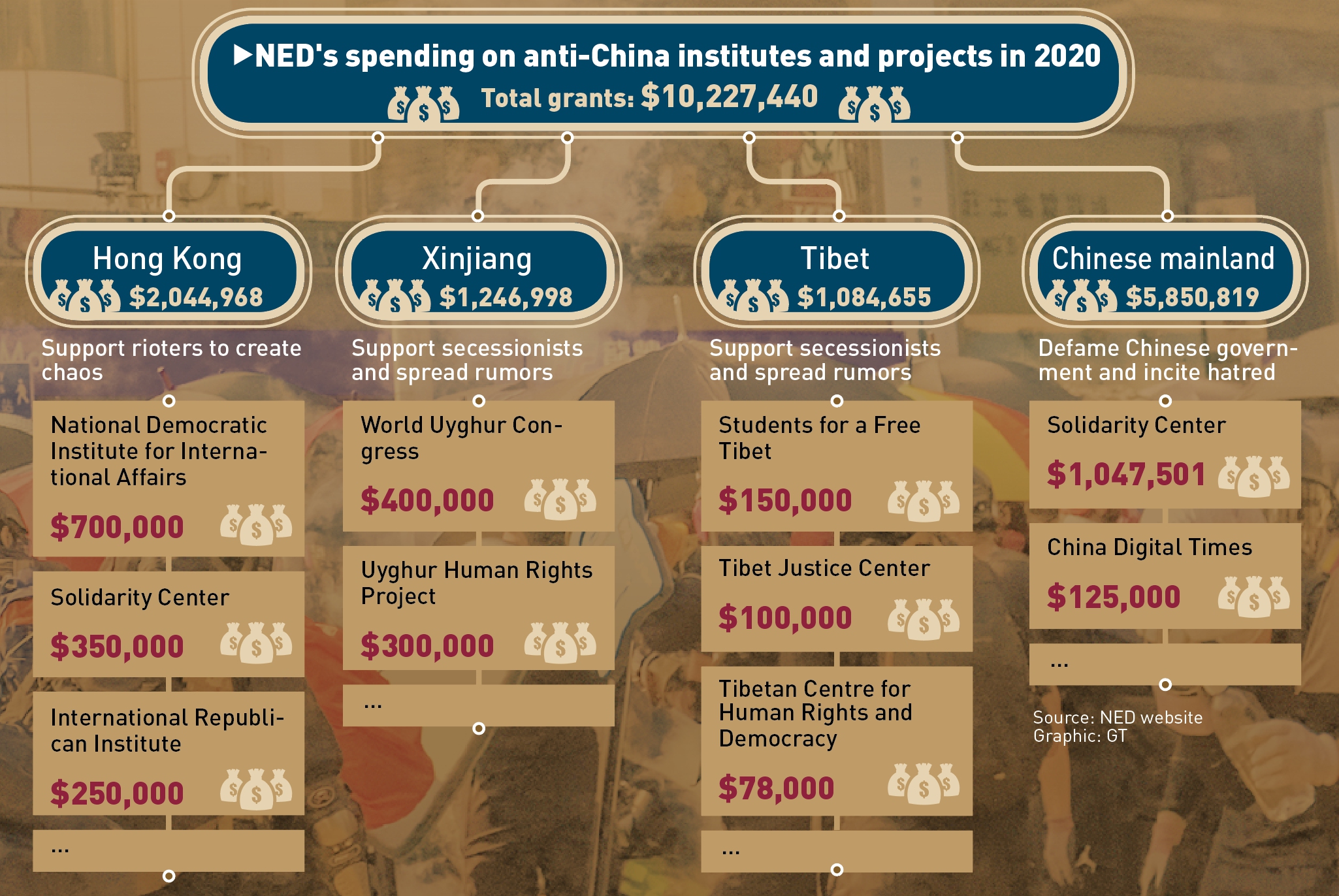
China's tough stance in Alaska turns heads






